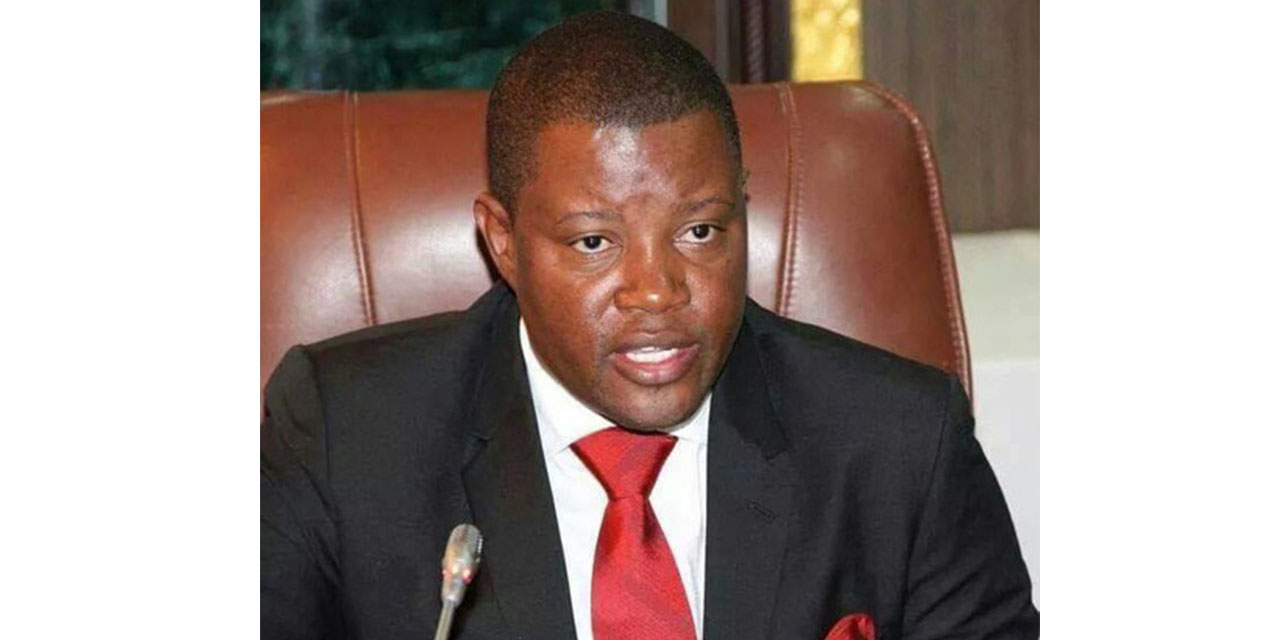Martin Endjala
The Popular Democratic Movement leader McHenry Venaani has criticized fellow politicians for failing to address issues that will change the lives of the people further accusing them of just driving their own agenda that is not aimed at developing the country.
Venaani made these critical remarks during a public dialogue on the office of the leader of the official opposition held at the NUST auditorium organised by PDM this week.
“We do not have effective dialogues to deal with matters affecting the people, nor are we concentrating on coming up with bright ideas that will improve people’s livelihoods, except calling out each other’s names and shaming each other’s parties, hence why public anger is vented towards politicians for not delivering”, Venaani stated.
The forever vocal Venaani says that the office of the leader of the official opposition ought to address criticisms raised by the people, for its main purpose is to scrutinize the work and performances of the government and to remind it of its shortcomings as well as to hold it accountable.
Now this comes after the office of the leader of the official opposition came to the realization that not many people are sensitized about its functions, hence the creation of a public dialogue to engage the public on the functions of the office and to listen to the public concerns.
The leader complaint about the lack of respect the office of the leader of the official oppositions are facing in Africa and in Namibia. And that there is a misconception which a negative connotation, stating that although the shadow government is tolerated it is not fully accepted by the ruling government, hence the inadequate funding it is currently getting from the government.
Because of insufficient funding and lack of resources the office cannot fully carry out its duties, hence the misconception from the public, he stated.
However, he said the office has done its best with the little it has in holding the government accountable and raising relevant people centred issues.
Venaani also raised concerns about the official opposition not showing its muscles when motions are passed and the implementation thereof.
He further said the governing party will hardly allow the passing of a motion proposed by an opposition party or the implementation thereof.
Venaani pointed to the right of an opposition party to bring in private members in the parliament which can then challenge policy formulations and make better recommendations that are in the best interest of the people.
He further called on members of the public to come forth with their criticism of the official opposition for them to see what they are not doing right and to correct were they are failing in order to bring new ideas.
He wants political leaders to shy away from their party affiliations and personal agendas in order to bring ideas that can bring about societal development.
The Institute of Public Policy Research Executive Director Graham Hopwood wants the office of the leader of the opposition to stop reacting to events after they have already unfolded, as the official opposition should be setting the public agenda.
The executive director also underscored the importance of creating research units, which will help them to better prepare when they are the government and have to make policies. Giving examples such as the Swapo ‘Think Tank”, although stating that he has not seen much from them either.
Hopwood further advised to come up with clear communication strategies that an ordinary person in the community can grasp. He also suggested that the dialogues of the parliamentary committees to be made more publically to know exactly what they are working on.
“Many times the parliamentary committee work is not transparent enough as it should be, and perhaps the opposition office could look into that and see if they can approach them to review certain bills and motions passed in the parliament,’’ said Hopwood.
“One thing that political parties do not understand is the voting behaviour, a voter can vote for you now, but there is no guarantee that they will in the next elections which is after five years,’’ were the views another analyst Sindiso Moyo came up with.
‘’The power of incumbency allows the government to be slack,’’ Moyo warned, saying that ‘’governments will always exist, but democracy will not always exist, but it is what enables an able state to become an unable state, hence he urges the opposition office to ensure that it holds the incumbency government accountable.
Another political analyst Roy Tiyende, said that political parties need to move away from tribal projects in order to reach out to all corners of the country and mobilize communities on issues that are of concern.
Tiyende further said opposition parties to should fully sensitize the public about its agendas emphasising though that “politics is an art of deception”, adding that ‘’a politician will do and say anything to get into power’’.




